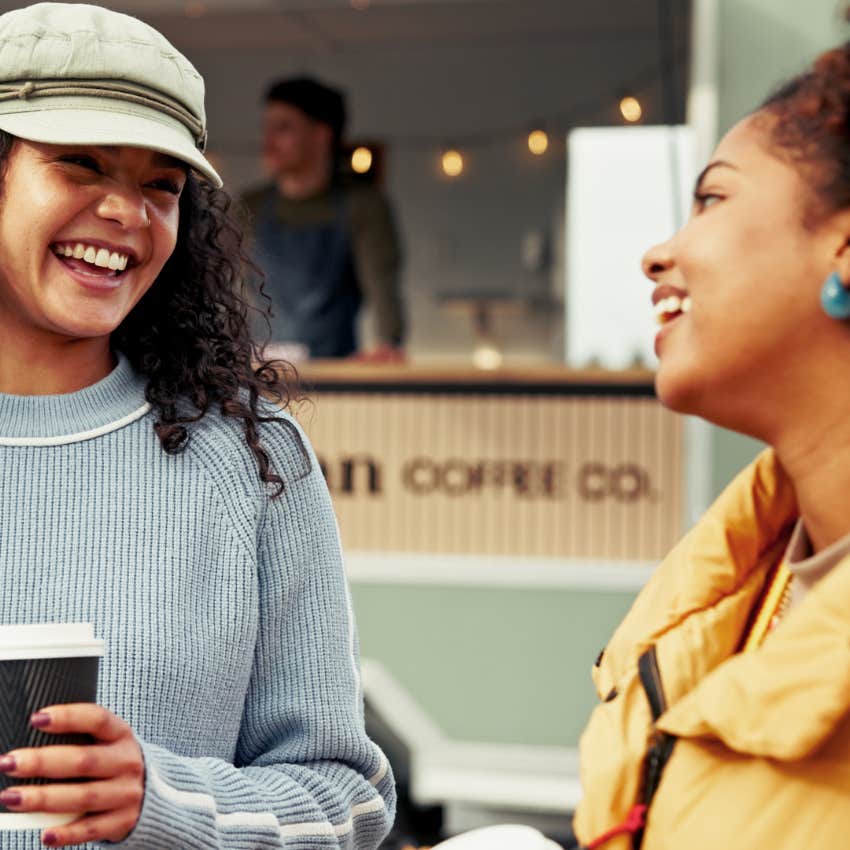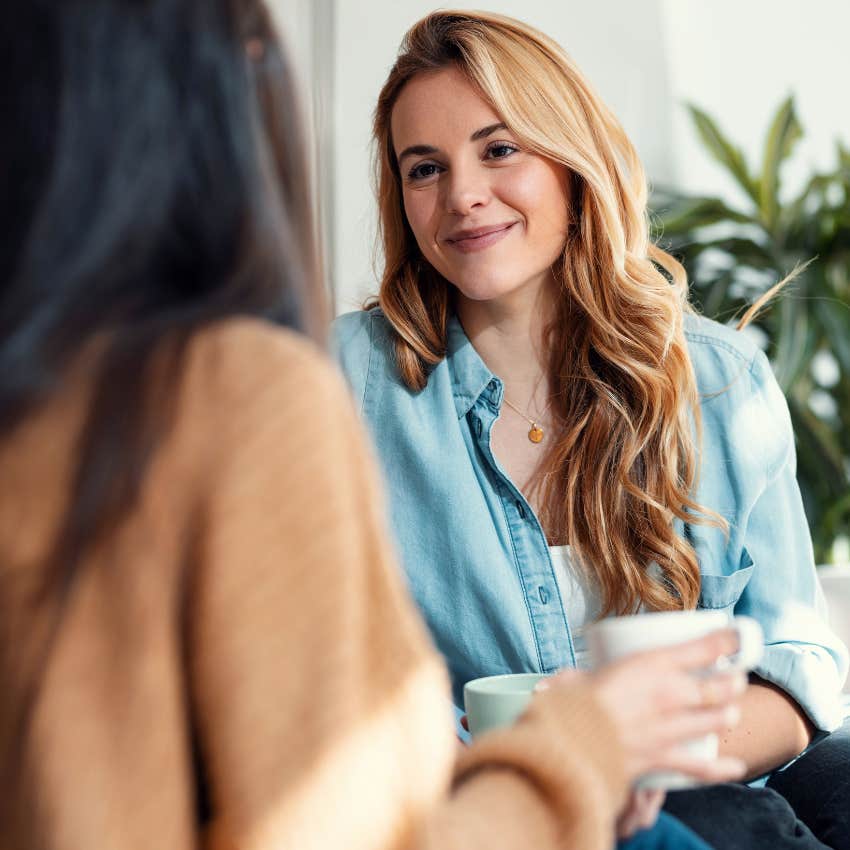The Art Of Self-Discovery: 5 Ways Other People Quietly Teach You Who You Really Are
 Thurtell | Canva
Thurtell | Canva Life hacks are wonderful things. If you’re not familiar with the term, it means any kind of trick, shortcut, or best practice that you can use to make your life better, faster, or simpler. Oftentimes, they’re uber-practical — like ways to organize your phone charger cords or how to pack your suitcase for ultimate space-efficiency — but life hacks can also be applied to your personal relationships as well. Even your relationship with yourself. (It’s true!)
With our experts, we proposed a life hack scenario to a group of our psychologists, counselors, and life coaches — how can a person get to know themselves better through their relationships with other people?
It’s the ultimate “Know Thyself” hack. We spend so much time judging and critiquing the other people in our lives, so it begs the question — can we turn those critical insights inward? Can we use what we’ve learned in our analyses of others to give us a better understanding of who we are? The short answer is yes.
The team of love and relationship experts we asked — Clara Wisner, T-Ann Pierce, Kathryn Foster, and the late Helen Fisher — definitely suggested some tangible, insightful, and ingenious methods for learning more about yourself by taking a critical look at the relationships in your life.
Here are five ways other people quietly help you discover who you really are:
1. They show you what you need
This might sound a little corny, but try to think of a relationship as an actual ship, a cargo ship that makes deliveries. Because it’s important to realize that relationships should be mutually beneficial. When we interact with someone, we should think about what we’re getting from the relationship. Is it love, companionship, empathy, validation?
What is that relationship delivering to us that we need to unpack and make room for in our lives? And what does it say about us that we require those deliveries? Beyond that, once you can start imagining the ship metaphor, you can turn it around and ask yourself, “Well, what am I delivering to my friends and family in return? Am I delivering to them what they need?” It can be really eye-opening.
2. They show you how you react to things
 PeopleImages / Shutterstock
PeopleImages / Shutterstock
This is a hard one, particularly when emotions are high. When we react to the people in our lives, it says a lot about our relationship and what’s going on with us internally.
There's actually research on something called "affect labeling" that confirms the power of that brief pause before you react. Emotional awareness gives you space to breathe before responding, and that space is often where self-discovery lives.
So, try this exercise. The next time, you’re about to give an emotional response to someone in your life — you’re going to yell at them, argue, mock them, etc. — force yourself to take a moment and try to identify the emotion that wells up inside of you before you respond. That quick pause can tell you volumes about what’s going on inside of you emotionally at the time.
3. They make you ask, 'WWID?' ('What would I do?')
We can’t learn anything about ourselves in a vacuum. Because personal insights don’t just appear out of thin air. The majority of the time, they come from comparing and contrasting ourselves with others. We derive greater knowledge of ourselves by placing ourselves in context with the rest of the people in our lives.
If someone frustrates us, we can ask ourselves, “Would I do that? Would I respond that way?” If someone does something we admire, we can ask, “What would I need to do in my life to respond similarly?” While there are unhealthy ways to compare ourselves to others, it can also be a fantastic way to put ourselves in other people’s shoes and use that internal role-playing to learn more about who we are.
4. They show you how you treat people
This exercise is particularly important if you’re having conflict with the important people in your life. If you’re having a problem or some drama with someone, every day, force yourself to write down one thing you like or appreciate about them.
The things can be small (and you might have to stretch to find them occasionally), but the act of writing those items down will train your mind to seek out positive qualities in people. And, hopefully, once you learn how to do that with other people, you can start to use that same skill set to see the good in yourself.
Research shows this really works. People who practiced daily gratitude writing in their relationships started using more positive problem-solving techniques and were less likely to shut down or lash out during disagreements. After just 21 days of practicing gratitude, you can actually rewire your brain to start scanning the world for positive things.
5. They reveal things in you that you may not notice
 Josep Suria / Shutterstock
Josep Suria / Shutterstock
This step sounds so easy, but it really isn’t. How can you learn about yourself from the people in your life? Well, pretty often, they try to tell you.
They offer constructive criticism, or they pay you a compliment. The problem is — we don’t listen. We either get defensive about anything critical or immediately turn self-deprecating and refuse to accept the compliment.
That needs to stop. We need to open ourselves up to all of the insights that people offer us every day. It doesn’t mean that everything they say will be true, but it can speak volumes about how they perceive you.
The YourTango Experts team includes licensed therapists, dating and life coaches, matchmakers, and more professionals committed to offering you the tools and guidance for a happier and more rewarding life.

